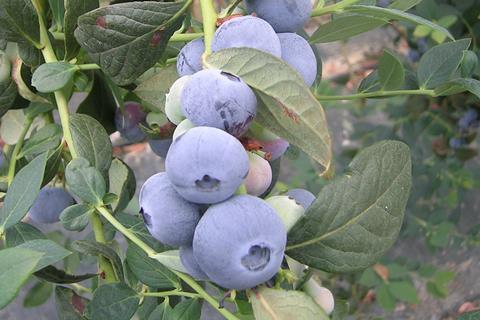Regulator considers the level of residues detected unlikely to pose a serious risk to human health, but has suspended use as a precautionary measure, adding berries remain safe to eat

The Australian Pesticides and Veterinary Medicines Authority (APVMA) has suspended the product registration and label approval of chemical products containing dimethoate for use on blueberries, raspberries and blackberries after a review.
APVMA said it suspended use as a precautionary measure and berries remain safe to eat.
The review followed new information provided to APVMA by Food Standards Australia and New Zealand (FSANZ), which indicated that Australians’ consumption of blueberries, blackberries and raspberries has increased significantly compared to the amount assessed during the most recent dimethoate reconsideration completed in 2017.
Based on these consumption figures, the APVMA reassessed the potential level of dietary exposure for all chemicals approved for use in these berries and found that use of dimethoate following the approved label directions does not leave an adequate safety margin between the possible level of dimethoate residues and the maximum acceptable level of exposure.
The APVMA said it considers the level of residues detected are unlikely to pose a serious risk to human health but has suspended use as a precautionary measure.
It added that no other chemicals used on blueberries, raspberries or blackberries require regulatory action at this stage and it remains satisfied that all other approved uses of dimethoate are safe.
Chair of Berries Australia Anthony Poiner said the industry body welcomed the APVMA’s clarification on the use of dimethoate on berries.
“Mindful of concerns about cost increases and supply challenges as a result of restriction of pesticide options, the industry has been working for clear guidance and alternative solutions as part of ongoing investment in sustaining safe and enhancing sustainable production practices,” said Poiner.
“The berry industry has acted to minimise pesticide use, mainly by adopting integrated pest management strategies and increasing biological controls to reduce chemical dependence. Integrated pest management incorporates biological controls (predatory mites and insects), protected cropping through nets, and innovative farming practices, using chemical pesticides only as a last resort, to ensure the quality of berries sent to market.”
The APVMA published the notice of the suspension on 11 November 2025, including a brief statement of reasons for the decision, and instructions for use during the suspension period, which allow the continued use of dimethoate with a 14-day harvest withholding period when used on blueberries, raspberries and blackberries. The permit is valid for one year.
Holders of dimethoate product registrations may apply to the APVMA to vary their registration to include a 14-day harvest withholding period for blueberries, blackberries and raspberries or remove the use pattern on those berries entirely, which will result in the product no longer being suspended.
However, industry submissions as part of the review noted a 14-day harvest withholding period is operationally unusable for blueberries, because of the short rotation of harvesting cycles at peak season.



